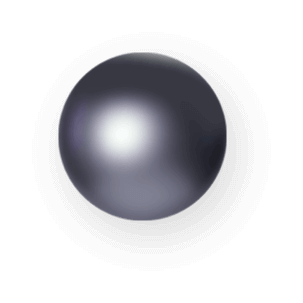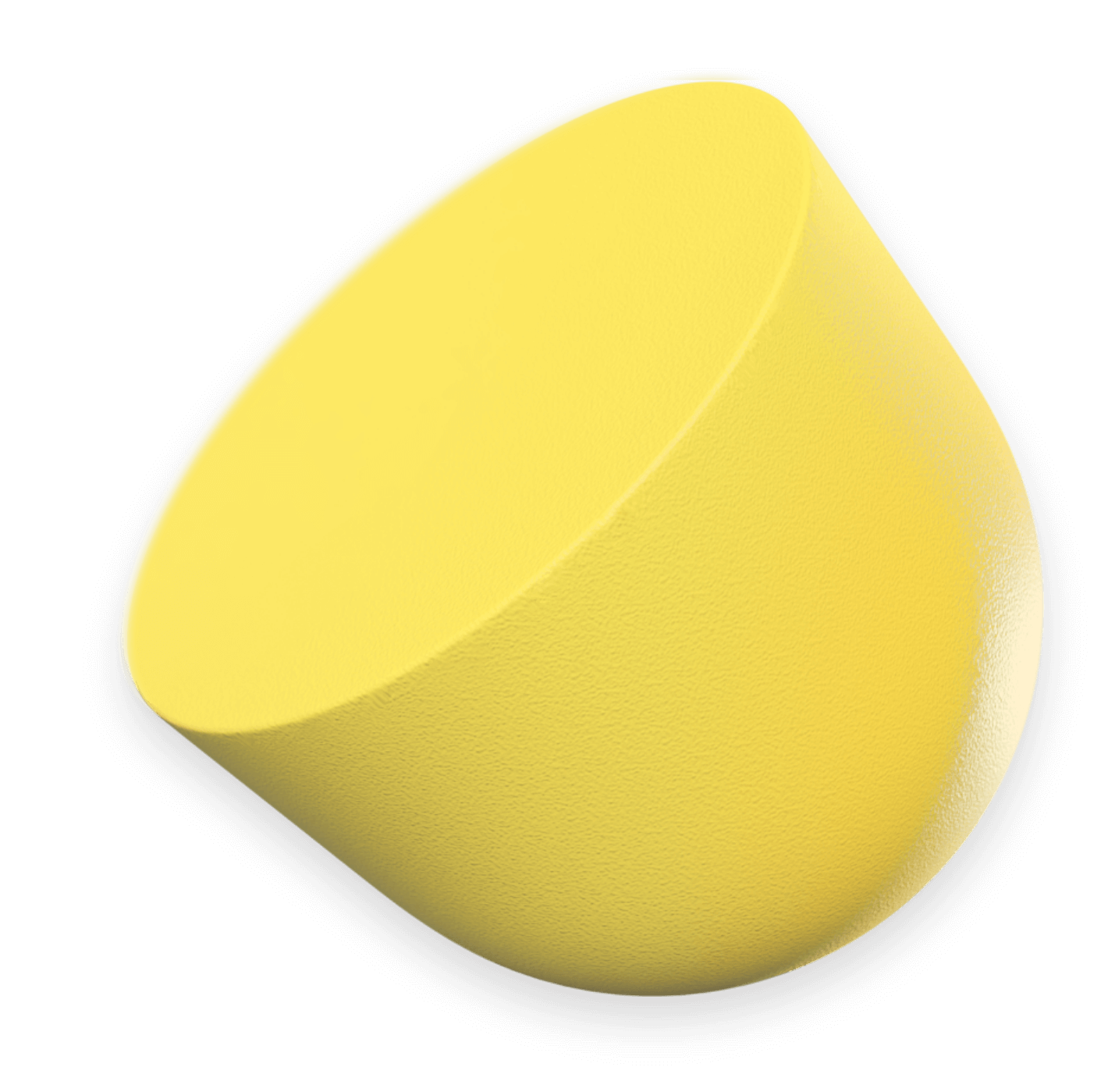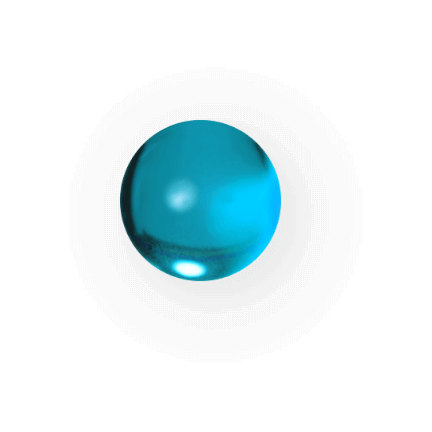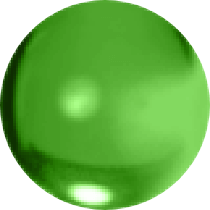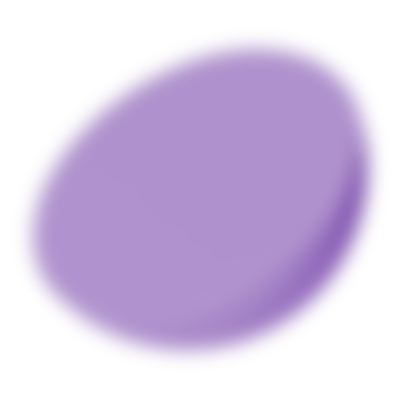Surpassing Water Resource Standards through Continuous Innovation and Breakthroughs.
Water resource risk is evaluated by AUO to avoid being affected by heavy rains or droughts caused by climate change. Water-saving technologies have also been developed to reduce water consumption and monitor water quality automatically. We strive to comply with the law and reduce our environmental impact even further.
Reduce level of dependence on water resources
Improve production efficiency, reduce consumption of natural water resources, and reduce level of dependence on water
Water consumption for the current year
6328.07 Cubic meters

Improve production water recovery rate
Effective circulation and separation for treatment for further concentration and reclamation to improve water recovery rate
Production water recycled is
94.70 %

Develop a range of water reclamation resources
Develop a range of water resources to strengthen resilience and adaptation to extreme climate risks
Water reclamation over
3359.6 tonnes

Innovative water treatment technology
Use high-level treatment technology developed and integrated in-house To achieve zero wastewater discharge and eliminate the environmental burden on waterways
100% recovery of production water at
1st Longtan fab

Water Resources Use and Saving Goals
AUO responds to the spirit of SDG 6 on clean water resources by incorporating "Water Conservation and Innovation" as one of the goals of CSR EPS 2025. The water conservation and innovation goal from 2018 to 2025 is set as "Value chain jointly address the water scarcity crisis, cumulatively saving 100,000 CMD (cubic meters per day) of tap water."。
Unir:million tons
Water resource-related outcomes
AUO uses"Water Intensity," "Total Water Recycled," "Production Water Recycle Rate," and "Water Consumption" as key indicators for the CSR EPS 2025 "Water Conservation and Innovation" goals.
Unit:(m3/m2)
Unit:Megaliters
Unit:%
AUO's water consumption target for 2024 was set at less than 6.5 million cubic meters, and the actual water consumption was 6.328 million cubic meters, successfully achieving the target.
Unit:Megaliters
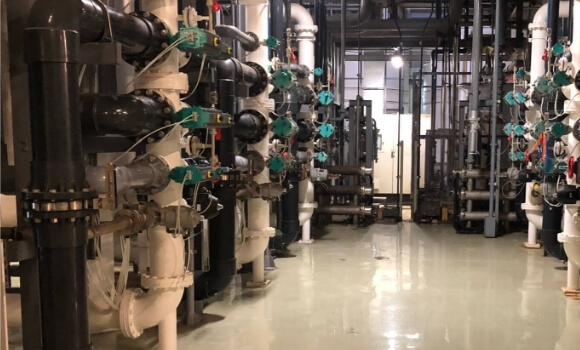
Continuing to improve water recycling rate through optimization of water-saving technology
An assessment was conducted to determine if meeting the water recycling standard was feasible within the existing system structure to enhance overall water recycling at the site. At the Tainan site, testing the water quality of the recycling tank allowed cleaner reclaimed water to be directed to the industrial tank for reuse, addressing the issue of insufficient tank capacity. The operating time of the resin column was extended to reduce the need for regeneration and water usage, resulting in decreased wastewater discharge and tap water consumption.
Increasing water recycling by introducing new materials
A new water-saving technology was implemented with a new type of super-filtration membrane installed in the bio-recovery system. The flux rate at the Taichung Plant was increased by 20% by using the new membrane while the pressure differential remained the same.
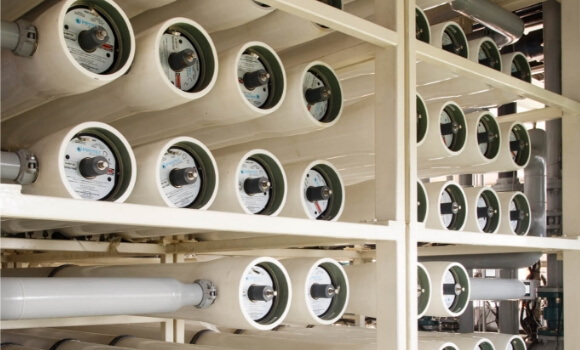
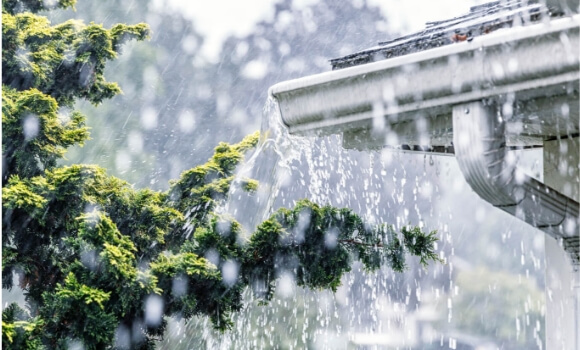
Optimizing water utilization through a rainwater recovery system
he design and planning of the conduits piped rainwater from the roof of the factory as well as steam condensate to the rainwater or factory water tanks for storage. The stored water can then be used for flushing toilets, watering the gardens or hosing down the roads.
100% recovery of production rate
The innovative water reclamation system developed and integrated by AUO is a total production water recycling system that recovers 100% of the production water used at the Longtan plant. The combination of separates at the source and different recovery methods reduces production water consumption at Longtan plant by up to 98%. Zero-discharge is then achieved using high-efficiency thermal recovery and evaporation equipment. The 18,000 tonnes of daily water consumption can then be completely recycled for re-use within the plant, reducing the environmental burden and impact on the waterways.
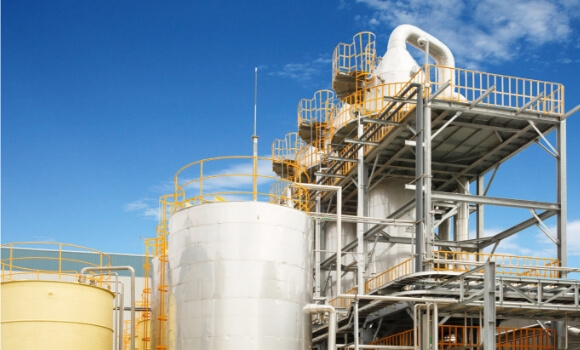
Continuing to improve water recycling rate through optimization of water-saving technology
An assessment was undertaken to see if the water recycling standard can be met under the existing system structure in order to increase the overall amount of water recycled throughout the site. Take example of Tainan site , the main action taken was testing the water quality of the recycling tank, so that cleaner reclaimed water could be directed to the industrial tank for re-use. This helped to mitigate the problem of insufficient tank capacity as well. The operating time of the resin column was also extended to reduce the frequency of resin column regeneration and the amount of water used for regeneration. The move successfully reduced the amount of wastewater discharge and tap water usage.
Water recycling rate
94.70 %

Tap water usage(basic stability)
+2.33 %

Wastewater (basic stability)
+2.73 %

Increasing water recycling by introducing new materials
A new water-saving technology was implemented with a new type of super-filtration membrane installed in the bio-recovery system. The flux rate at the Taichung Plant was increased by 20% by using the new membrane while the pressure differential remained the same.
Amount of water recovered
30 tonnes
pressure difference
0.3 Kg
Flux rate
20 %
Optimizing water utilization through a rainwater recovery system
The design and planning of the conduits piped rainwater from the roof of the factory as well as steam condensate to the rainwater or factory water tanks for storage. The stored water can then be used for flushing toilets, watering the gardens or hosing down the roads.

100% recovery of production rate
The innovative water reclamation system developed and integrated by AUO is a total production water recycling system that recovers 100% of the production water used at the Longtan plant. The combination of separates at the source and different recovery methods reduces production water consumption at Longtan plant by up to 98%. Zero-discharge is then achieved using high-efficiency thermal recovery and evaporation equipment. The 18,000 tonnes of daily water consumption can then be completely recycled for re-use within the plant, reducing the environmental burden and impact on the waterways.
Whole procedures of process recycle water












